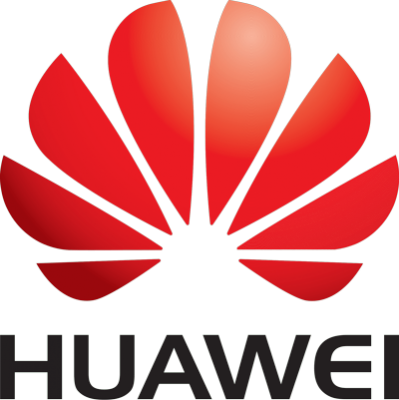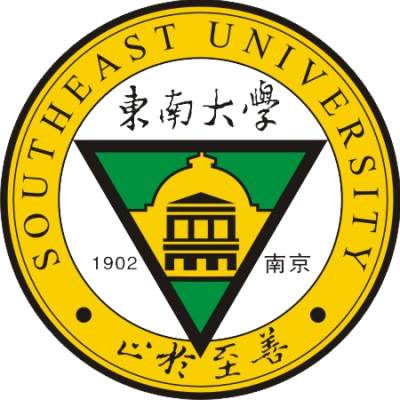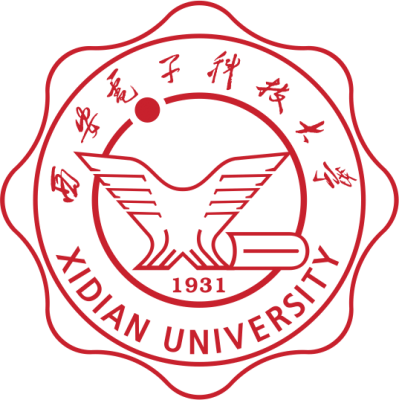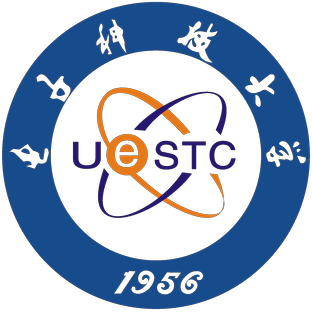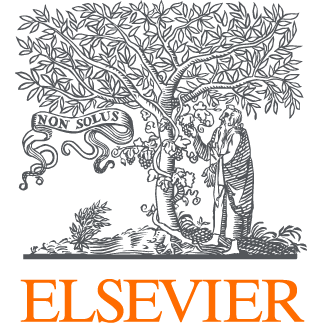Date: Tuesday, 21 May 2019
Time: 17:30-19:00
Location: Grand Ballroom I, 7th Floor, Shanghai International Convention Center
Renowned panelists from industry and academia will discuss the challenges of industrial R&D today, the need of more industry/academia collaboration, and the role that ComSoc/IEEE can have in facilitating industry/academia synergy.
All conference attendees are welcome to join this event. Please be sure to wear your official conference badge.
Panel Organizer:
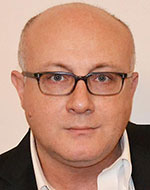 Stefano Galli, Lead Scientist, Futurewei’s Radio Algorithms Research Lab, New Jersey
Stefano Galli, Lead Scientist, Futurewei’s Radio Algorithms Research Lab, New Jersey
Vice-President of Industry and Standards, IEEE Communications Society
Stefano Galli received his Ph.D. degrees in Electrical Engineering from the University of Rome “La Sapienza” (Italy). Currently, he is a Lead Scientist in Futurewei’s Radio Algorithms Research Lab in Bridgewater, NJ. Past positions include, Director of Technology Strategy of ASSIA, Director of Energy Solutions R&D for Panasonic Corporation, and Senior Scientist at Bellcore.
Dr. Galli is very active in various professional organizations where he often holds senior roles. He is currently serving as the IEEE Fellow Committee Chair, and has served as Member of the IEEE ComSoc Board of Governors as elected Member-at-Large (2008-2015) and in a variety of other IEEE and ComSoc positions. He is also serving as Rapporteur (Chair) for the ITU-T Q15/15 “Communications for Smart Grid” standardization group. Past positions include serving as Co-Chair of the “Communications Technology” Task Force of the IEEE 2030 Smart Grid standard, and Co-Leader of the “Theoretical and Mathematical Models” Group of the IEEE 1901 Broadband over Power Lines standard. He has submitted numerous standards contributions to a variety of Standards Developing Organizations: IEEE, ITU-T, ETSI, BBF, ATIS, and NICC.
Dr. Galli is a Fellow of the IEEE, has received the 2014 Broadband Forum Outstanding Contributor Award, the 2013 IEEE Donald G. Fink Best Paper Award, the IEEE ISPLC Best Paper Awards in 2010 and 2015, the 2011 IEEE ComSoc McLellan Meritorious Service Award, and the 2011 Outstanding Service Award from the IEEE ComSoc Technical Committee on Power Line Communications. He holds 27 issued/pending patents, has authored 110+ papers, and has co-authored one book and five book chapters. His research interests lie in wireless communications, broadband access, home networking, and Smart Grid communications.
Panel Moderator:
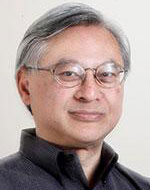 Vincent Chan, Joan and Irwin Jacobs Professor of EECS, MIT
Vincent Chan, Joan and Irwin Jacobs Professor of EECS, MIT
President Elect 2019, IEEE Communications Society
Vincent W. S. Chan, the Joan and Irwin Jacobs Professor of EECS, MIT, received his BS(71), MS(71), EE(72), and Ph.D.(74) degrees in EE all from MIT. From 1974 to 1977, he was an assistant professor, EE, at Cornell University. He joined MIT Lincoln Laboratory in 1977 and had been Division Head of the Communications and Information Technology Division until becoming the Director of the Laboratory for Information and Decision Systems (1999–2007). He is currently a member of the Claude E. Shannon Communication and Network Group at the Research Laboratory of Electronics of MIT. In July 1983, he initiated the Laser Intersatellite Transmission Experiment Program and in 1997, the follow-on GeoLITE Program. In 1989, he formed the All-Optical-Network Consortium among MIT, AT&T and DEC. He also formed and served as PI the Next Generation Internet Consortium, ONRAMP among AT&T, Cabletron, MIT, Nortel and JDS, and a Satellite Networking Research Consortium formed between MIT, Motorola, Teledesic and Globalstar. He has served in many US/non-US government advisory boards/committees and the Board of Governors of the Communication Society including VP of Publications. He also has been active with several start-ups and was a director of a Fortune-500 company and chaired its technical advisory board. He is a Member of the Corporation of Draper Laboratory and is a member of Eta-Kappa-Nu, Tau-Beta-Pi and Sigma-Xi, and the Fellow of the IEEE and the Optical Society of America. He is currently the Chair of the Strategic Planning Committee and the President Elect of the IEEE Communication Society.
Throughout his career, Professor Chan has spent his research focus on communication and networks, particularly on free space and fiber optical communication and networks and satellite communications. His work has led the way to a successful laser communication demonstration in space and early deployment of WDM optical networks. His recent research emphasis is on algorithmically-optimized heterogeneous network architectures with stringent performance demands.
Panelists include:
Academia:
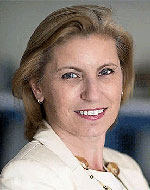 Maite Brandt-Pearce, University of Virginia
Maite Brandt-Pearce, University of Virginia
Maïté Brandt-Pearce is Vice Provost for Faculty Affairs and Professor of Electrical Engineering. In the Provost’s Office, Brandt-Pearce is responsible for coordinating faculty recruitment and retention efforts university-wide. She also develops and implements faculty policies, oversees the promotion and tenure process at the University, directs faculty development programming, assists faculty in addressing dual career issues, and coordinates efforts to ensure diversity, inclusion, and equity.
Brandt-Pearce joined the University of Virginia faculty in 1993 and the Provost’s Office in 2018. Her primary teaching and research interests are optical communications, specifically visible light communications and cross-layer design of fiber optic networks. Brandt-Pearce is the recipient of an NSF CAREER Award and an NSF RIA. She is a co-recipient of Best Paper Awards at ICC 2006 and GLOBECOM 2012 and has over 200 technical publications.
Brandt-Pearce is a graduate of Rice University, where she earned a B.S. in Electrical Engineering with a double major in Applied Mathematics, after which she worked with Lockheed in support of NASA Johnson Space Center. She then returned to Rice and earned an M.E.E. and Ph.D. in Electrical Engineering. In 2015 year, she became Executive Associate Dean for Academic Affairs in the School of Engineering. On her watch, the school has seen significant enrollment increases in the PhD program, increases in diversity in the undergraduate program, and a proliferation of high-profile research and entrepreneurship success stories. Brandt-Pearce led the highly collaborative, School-wide Focus for Excellence Initiative that resulted in Engineering’s new mission, vision and core values, and spearheaded Engineering’s staff culture engagement group, emphasizing career development and advancement. She is also Chair of the Board and co-founder of VLNComm, a leading company in Visible Light Communication (VLC) technology, or “Li-Fi”, an alternative data communication technique for wireless applications that uses optical energy to provide simultaneously lighting needs and data transmission.
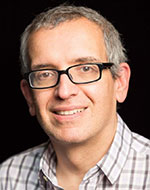 Luiz DaSilva, Chair of Telecommunications, Trinity College Dublin
Luiz DaSilva, Chair of Telecommunications, Trinity College Dublin
Luiz DaSilva holds the chair of Telecommunications at Trinity College Dublin, where he is the Director of CONNECT, the Science Foundation Ireland Research Centre for Future Networks and Communications. CONNECT comprises approximately 200 researchers across 10 higher education institutions in Ireland. We work closely with 40 industry partners, from large multi-national companies to SMEs.
Prior to joining Trinity College, Prof DaSilva was a tenured professor in the Bradley Department of Electrical and Computer Engineering at Virginia Tech. His research focuses on distributed and adaptive resource management in wireless networks, and in particular radio resource sharing and the application of game theory to wireless networks. Prof. DaSilva is a principal investigator on research projects funded by the Science Foundation Ireland and the European Commission. Prof DaSilva is a Fellow of Trinity College Dublin, and a Fellow of the IEEE, for contributions to cognitive
networks and to resource management in wireless networks.
 Gerhard P. Fettweis, Vodafone Chair Professor, TU Dresden
Gerhard P. Fettweis, Vodafone Chair Professor, TU Dresden
Gerhard P. Fettweis is Vodafone Chair Professor at TU Dresden since 1994, and heads the Barkhausen Institute since 2018, respectively. He earned his Ph.D. under H. Meyr's supervision from RWTH Aachen in 1990. After one year at IBM Research in San Jose, CA, he moved to TCSI Inc., Berkeley, CA. He coordinates the 5G Lab Germany, and 2 German Science Foundation (DFG) centers at TU Dresden, namely cfaed and HAEC. His research focusses on wireless transmission and chip design for wireless/IoT platforms, with 20 companies from Asia/Europe/US sponsoring his research.
Gerhard is IEEE Fellow, member of the German Academy of Sciences (Leopoldina), the German Academy of Engineering (acatech), and received multiple IEEE recognitions as well has the VDE ring of honor. In Dresden his team has spun-out sixteen start-ups, and setup funded projects in volume of close to EUR 1/2 billion. He co-chairs the IEEE 5G Initiative, and has helped organizing IEEE conferences, most notably as TPC Chair of ICC 2009 and of TTM 2012, and as General Chair of VTC Spring 2013 and DATE 2014.
Gerhard P. Fettweis, F’09, earned his Ph.D. under H. Meyr at RWTH Aachen. After one year at IBM Research, San Jose, he moved to TCSI, Berkeley. Since 1994 he is Vodafone Chair Professor at TU Dresden. Since 2018 he heads the Barkhausen Institute. He researches wireless transmission and chip design, coordinates two DFG centers (cfaed and HAEC), the 5GLab Germany, has spun-out sixteen startups, and is member of 2 German academies: (Sciences) “Leopoldina”, (Engineering) “acatech”.
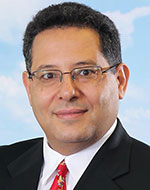 Khaled B. Letaief
Khaled B. Letaief
President 2018-2019, IEEE Communications Society
Dr. Letaief received the BS degree with distinction, MS and Ph.D. Degrees in Electrical Engineering from Purdue University, USA. He served as a faculty member at the University of Melbourne, Australia from 1990 to 1993. In 1993, he joined the Hong Kong University of Science and Technology (HKUST). While at HKUST, he has held many senior administrative positions, including the Head of the Electronic and Computer Engineering department, Director of the Center for Wireless IC Design, Director of Huawei Innovation Laboratory, and Director of the Hong Kong Telecom Institute of Information Technology. He also served as Chair Professor and Dean of Engineering. Under his leadership, HKUST Engineering has reached new heights and was ranked #14 worldwide at the end of his term in 2015 according to QS World University Rankings. From 2015 to 2018, he joined HBKU as Provost (chief academic officer) to help establish a research-intensive university in Qatar working with partners including Northwestern University, Carnegie Mellon University, Cornell University, and Texas A&M University.
Dr. Letaief is an internationally recognized leader in wireless communications and networks and is recognized as an ISI Highly Cited Researcher, which puts him among preeminent researchers who are most highly cited and comprise less than one-half of one percent of all published authors. He is an IEEE Fellow and HKIE Fellow, and received many esteemed awards including the Michael G. Medal for Distinguished Teaching, 2017 IEEE Cognitive Networks Technical Committee Publication Award, 2016 IEEE Marconi Prize Award in Wireless Communications, , 2016 IEEE Signal Processing Society Young Author Best Paper Award, 2011 IEEE Harold Sobol Award, 2010 Purdue University Outstanding ECE Alumni Award, 2007 IEEE Joseph LoCicero Publications Exemplary Award, and 15 IEEE Best Paper Awards.
He has served as a consultant for several organizations. He is founding Editor-in-Chief of IEEE Transactions on Wireless Communications. He has chaired many IEEE leading conferences such as ICC and WCNC, and served in many IEEE leadership positions, including ComSoc Vice-President for Technical Activities, Treasurer, Vice-President for Conferences, and Director of Journals. He has also served and provided strong representation for ComSoc on major IEEE committees and boards (e.g., Publication-Services and Products Board, Asia-Pacific Board, Periodicals Committee, Technical Activity Council, Fellow Committee, and Finance Committee). He is the President of the IEEE Communications Society (2018-19).
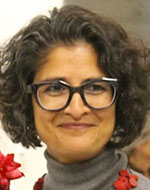 Urbashi Mitra, Gordon S. Marshall Professor in Engineering, University of Southern California
Urbashi Mitra, Gordon S. Marshall Professor in Engineering, University of Southern California
Urbashi Mitra received the B.S. and the M.S. degrees from the University of California at Berkeley and her Ph.D. from Princeton University. Dr. Mitra is currently the Gordon S. Marshall Professor in Engineering at the University of Southern California. She was the inaugural Editor-in-Chief for the IEEE Transactions on Molecular, Biological and Multi-scale Communications. She has been a member of the IEEE Communication Society's Board of Governors (2018-2020), the IEEE Information Theory Society's Board of Governors (2002-2007, 2012-2017), the IEEE Signal Processing Society’s Technical Committee on Signal Processing for Communications and Networks (2012-2016), the IEEE Signal Processing Society’s Awards Board (2017-2018), the Chair/Vice Chair of the IEEE Communications Society, Communication Theory Working Group (2019-2020,2017-2018). Dr. Mitra is a Fellow of the IEEE. She is the recipient of: the 2017 IEEE Women in Communications Engineering Technical Achievement Award, a 2015 UK Royal Academy of Engineering Distinguished Visiting Professorship, a 2015 US Fulbright Scholar Award, a 2015-2016 UK Leverhulme Trust Visiting Professorship, IEEE Communications Society Distinguished Lecturer, 2012 Globecom Signal Processing for Communications Symposium Best Paper Award, 2012 US National Academy of Engineering Lillian Gilbreth Lectureship, the 2009 DCOSS Applications & Systems Best Paper Award, 2001 Okawa Foundation Award, 2000 Ohio State University’s College of Engineering Lumley Award for Research, 1997 Ohio State University’s College of Engineering MacQuigg Award for Teaching, and a 1996 National Science Foundation CAREER Award. She has been an Associate Editor for multiple IEEE publications. Dr. Mitra has held visiting appointments at: King’s College, London, Imperial College, the Delft University of Technology, Stanford University, Rice University, and the Eurecom Institute. Her research interests are in: wireless communications, communication and sensor networks, biological communication systems, detection and estimation and the interface of communication, sensing and control.
Industry:
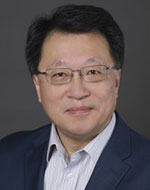 David Lu, Vice President, SDN Platform & Systems, AT&T Labs
David Lu, Vice President, SDN Platform & Systems, AT&T Labs
David Lu is currently responsible for development and engineering of AT&T next generation ECOMP platform and Open ECOMP (ONAP) to enable the AT&T network virtualization (SDN) and target OSS/BSS transformation including API, micro-services, policy control & orchestration, hyper-automation, and advanced data analytics. He leads an organization with more than 3,000 people across the globe.
David is a well-respected leader in large scale, real time software architecture and development, network performance and traffic management, work flow and policy-controlled automation, large databases and big data implementation/mining/analytics, machine learning, artificial intelligence, software reliability and quality, and network operations process engineering. He has led major software platform transformation initiatives from sales to network/service delivery/assurance, and billing platforms. Examples of his achievements include large scale platforms he has led and engineered that process annually: 984 Trillion network performance events and 348 Billion alarms with 99.99%+ automation; 60 Million dispatches with 14.4 Billion automated manual steps; and over 90 Billion API transactions.
Since joining AT&T Bell Labs in 1987, he has served in various leadership positions at AT&T. He has led multiple numerous automation initiatives in AT&T that resulted in multi-billion dollar savings in the past 15 years and won the AT&T CIO 100 Award in 2010. He holds 43 patents and has frequently appeared as a guest speaker at technical and leadership seminars and conferences throughout the world. He received numerous industry awards including the 2015 Chairman’s Award from IEEE Communication Society for Network and Systems Quality and Reliability and 2017 CIE AAEOY (Asian America Engineer of Year) Award. He has also been very active in community organizations and activities including AT&T APCA, DFW-CIE, and DFW Asian American Chamber of Commerce. He was recognized by AT&T APCA with the 2015 Corporate Leadership Award.
He was accepted to the world-renowned Shanghai Conservatory of Music and came to the U.S. to complete his college education. He has an undergraduate degree in music, majoring in cello performance and graduate degree in Computer Science.
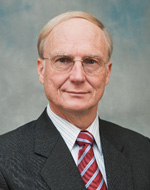 Ed Tiedemann, Senior Vice President, Qualcomm
Ed Tiedemann, Senior Vice President, Qualcomm
Dr. Edward G. Tiedemann, Jr. is a Qualcomm Fellow and a Senior Vice President of Engineering of Qualcomm Technologies, Inc. He leads Qualcomm’s worldwide standardization and industry organization activities. Dr. Tiedemann was instrumental in the design and development of the TIA/EIA/IS-95 CDMA system, also called cdmaOne™. He led Qualcomm and much of the industry’s efforts in the design and development of the third-generation cdma2000® system. Dr. Tiedemann holds over 200 US patents and has participated in many papers, conference lectures, and industry panels. He currently sits on the board of several industry organizations. He is interested in multiple topics in communications including 5G, IoT, and V2x.
Prior to becoming involved with terrestrial wireless communications, Dr. Tiedemann was involved with numerous commercial and military satellite systems. From 1977 to 1988, Dr. Tiedemann was at MIT Lincoln Laboratory, where he worked on mmWave satellite communications systems.
Dr. Tiedemann holds the Ph.D. degree from MIT where he worked in the areas of queueing theory and communications networks. He holds the Master of Science degree from Purdue University and a Bachelor of Science degree from Virginia Polytechnic Institute and State University (Va Tech).
Dr. Tiedemann is past chairman of the Advisory Board of the College of Engineering at Virginia Polytechnic Institute and State University (Va Tech). He currently sits on the Advisory Board of the Purdue University School of Electrical and Computer Engineering. Dr. Tiedemann was General Chair of GLOBECOM 2015. He is also a member of the Board of Overseers of the Peabody Essex Museum.
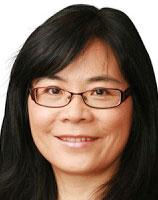 Peiying Zhu, Senior Director and Huawei Fellow, Wireless Technology Lab, Huawei Technologies
Peiying Zhu, Senior Director and Huawei Fellow, Wireless Technology Lab, Huawei Technologies
Dr. Peiying Zhu (IEEE Fellow), Huawei Fellow, Leader of Huawei Global 5G Research Program, Canada. Dr. Peiying Zhu is a Huawei Fellow and Senior Director of North American Wireless Research and Standards. The focus of her research is advanced wireless access technologies for LTE/LTE-A and beyond. She is currently leading 5G wireless system research in Huawei. Prior to joining Huawei in 2009, Peiying was a Nortel Fellow and Director of Advanced Wireless Access Technology in the Nortel Wireless Technology Lab. She led the team and pioneered research and prototyping on MIMO-OFDM and Multi-hop relay. Many of these technologies developed by the team have been adopted into WiMAX /LTE standards and 4G products. Peiying has more than 150 granted patents in those areas. She was actively involved in IEEE 802.16 and LTE standards development, served as IEEE 802.16j Relay Task Group vice chair, various ad-hoc chairs, and IEEE 802.16 Working Group Secretary positions. She is a WiFi Alliance Board member and Treasurer. Dr. Zhu is currently serving as a guest editor for the SPM Special Issue on Signal Processing for the 5G Revolution. Dr. Zhu received her Ph.D. degree in electrical Engineering from Concordia University in Canada and M.S. and Ph.D. degrees in Electrical Engineering from Southeast University in China.




